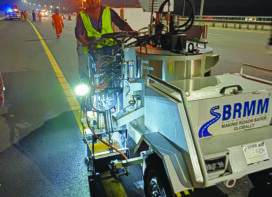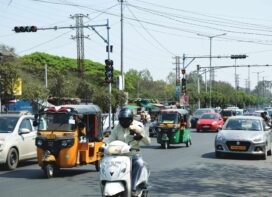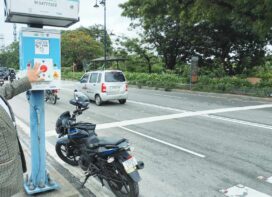 Mobile technologies and services are set to usher in a new era for transport sector, giving passengers a greater sense of control, reducing stress and enhancing the travel experience. TrafficInfraTech explores…
Mobile technologies and services are set to usher in a new era for transport sector, giving passengers a greater sense of control, reducing stress and enhancing the travel experience. TrafficInfraTech explores…
The next step to contactless technologies is to enable people to store electronic versions of their tickets or to look up for public transport information. The provision of this kind of timely, personalised information should make public transport easier to use, potentially reducing private car usage.
Digital wallets are gaining a foothold in the US and around the globe. These wallets are undoubtedly the latest payment innovation, and arise in the context of what is commonly described as the mobile revolution. The ubiquity of smartphones and other mobile devices means that a user now has an unprecedented amount of computing power at his/ her fingertips. The rise of mobile devices and digital wallets suggests that consumers will be more in control of their everyday payments than ever before.
Digital wallets made their way into the Indian economy as a means to pay utility bills, recharge mobile phones and DTH plans in a safe and convenient manner. The money credited in a digital wallet is stored in an escrow account and is completely secure as per strict Reserve Bank of India (RBI) norms.
In fact, in India, even the use of credit cards online has been overtaken by digital wallets, almost leapfrogging the credit card era completely. With digital wallets, the time consumed will be less than that taken to pay through credit or debit cards, and will be far more convenient than paying by cash which often involves risk and running around for change.
e-Tolling through Digital Wallet
According to a joint study by the Transport Corporation of India and the Indian Institute of Management- Calcutta, the implementation of a pan-India electronic toll collection system on national highways may help save `87,000Cr. The study said the cost due to the time spent at toll points alone added up to `27,000Cr a year. The extra fuel spent on slowing down and stopping at checkpoints costed `60,000Cr.
The government has already partnered with digital wallet companies for its electronic toll service, a move that will allow highway users to pay through e-wallet accounts like those of Mobikwik or Oxigen Wallet. Government recently launched an e-tolling service at 275 toll plazas across the country which allow vehicles with FASTag cards, (launched by the National Highways Authority of India (NHAI)) to pass through the toll plazas without having to stop.
 TrafficInfraTech Magazine Linking People Places & Progress
TrafficInfraTech Magazine Linking People Places & Progress



